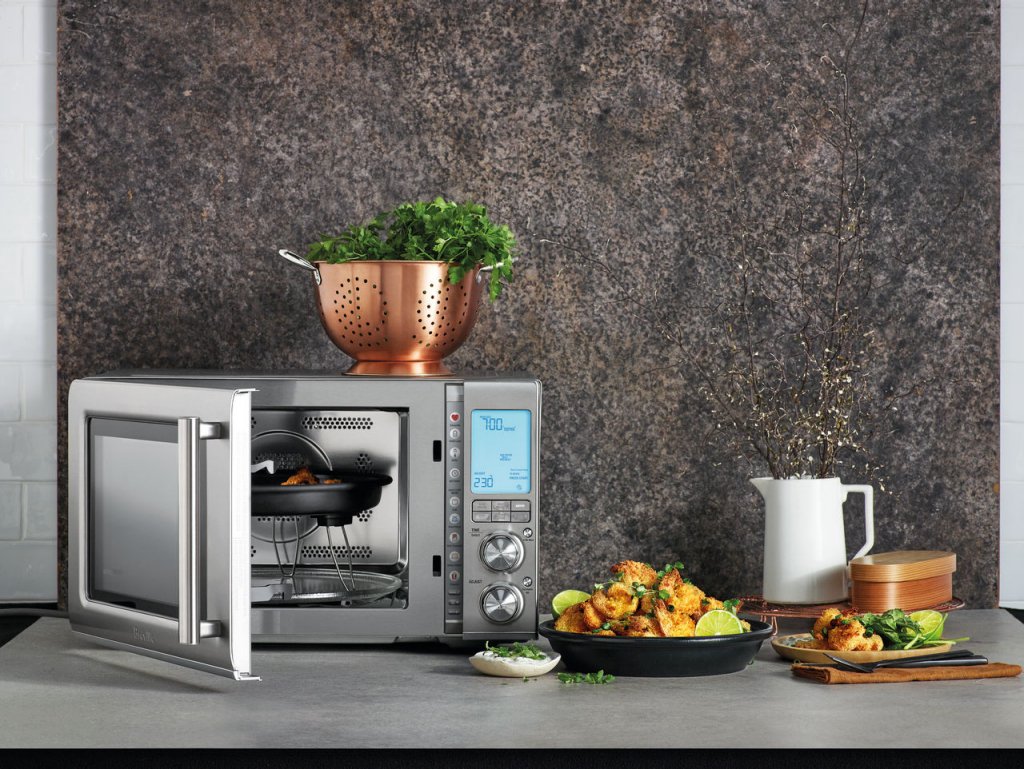When it comes to modern kitchen conveniences, the microwave has been a longstanding champion, celebrated for its speed and versatility. However, with the rise of the air fryer, many are beginning to question whether this trendy new appliance can take over the microwave’s long-held territory. At TheKitchenApplianceDad.com, we delve deep into the functionalities and capabilities of both appliances to see if an air fryer can truly replace a microwave.
Understanding the Basics
What Is an Air Fryer?
An air fryer is essentially a compact convection oven designed to simulate deep frying without submerging the food in oil. A fan circulates hot air at high speed, producing a crispy layer via the Maillard reaction (which gives fried foods their distinctive golden-brown texture) without necessarily using oil. This results in healthier meals compared to traditional deep frying.
What Is a Microwave?
A microwave oven uses microwave radiation to heat polar molecules in food. It is particularly efficient for heating leftovers, defrosting frozen foods, and cooking certain items quickly and with minimal fuss. Microwaves are a staple in nearly every kitchen due to their convenience and efficiency.

Comparing Functionality
Cooking Capabilities
- Microwaves: Excellent for reheating food, boiling water, cooking frozen dinners, and even making certain types of cakes and bread. It’s a versatile appliance that can handle various tasks beyond just warming up last night’s pizza.
- Air Fryers: Best known for giving a “fried” texture without the need for much oil. They are great for cooking meats, vegetable dishes, and even baking. Some models come with additional capabilities like roasting, grilling, and baking, which adds to their versatility.
Time Efficiency
- Microwaves: They are unbeatable when it comes to speed. Heating up a plate of food can take as little as two minutes, and defrosting meat can be done in a matter of minutes depending on the thickness.
- Air Fryers: Typically take longer than microwaves but are faster than conventional ovens. For instance, cooking chicken wings in an air fryer would take about 20-30 minutes, compared to a microwave which could reheat precooked wings in about five minutes.
Energy Efficiency
- Microwaves: They are generally more energy-efficient than conventional ovens because they directly heat the food, not the air around it. This direct method reduces cooking times and saves energy.
- Air Fryers: While they use more energy than microwaves, they are still more efficient than traditional ovens. The cooking time is shorter and they don’t require preheating, which also helps in saving energy.
Ease of Use
- Microwaves: Known for their simplicity and user-friendliness. Most models come with preset functions like popcorn, potato, reheat, defrost, etc., making them incredibly easy to use.
- Air Fryers: Although slightly more complex than microwaves, most air fryers are still user-friendly. They come with temperature control and timers, but may require a bit more interaction, such as flipping or shaking the food midway through cooking.
Can an Air Fryer Truly Replace a Microwave?
While air fryers offer a healthier alternative to frying and have added functionalities like baking and grilling, they do not completely match the microwave in terms of sheer convenience and speed. Here’s why:
- Reheating Liquids: Microwaves can quickly and efficiently heat soups and beverages, something air fryers are not designed to do.
- Defrosting: Microwaving is the go-to method for defrosting frozen food quickly and uniformly. Air fryers can cook from frozen, but for defrosting, they are not as effective.
- Cooking Certain Foods: Items like popcorn or a quick mug cake are more suited to a microwave.
Conclusion
While an air fryer is a fantastic tool for creating healthier meals and can replace some functions of the microwave, it doesn’t completely eliminate the need for one. Homes that value quick reheating, efficient defrosting, and the preparation of a wide range of dishes might still benefit from keeping both appliances. However, for those focusing on crafting meals with a preferable texture and taste, and who don’t mind the slightly longer cooking times, an air fryer could be a worthy primary kitchen gadget.
Key Takeaways
- Versatility: Microwaves handle a variety of cooking tasks efficiently, while air fryers offer a healthier way to achieve fried food textures.
- Convenience: Microwaves win for speed and ease, perfect for rapid reheating and defrosting. Air fryers require more cooking time but produce better-tasting results.
- Energy Efficiency: Both appliances are more energy-efficient than traditional ovens, with microwaves being slightly better in this aspect.
- Cooking Methods: Air fryers are great for a crispy finish but cannot perform microwave-specific functions like reheating beverages or evenly defrosting food.
The decision between an air fryer and a microwave ultimately depends on your cooking style and needs. If you’re looking to reduce oil in your diet and don’t mind waiting a bit longer for food, an air fryer could be a great addition. However, for those who value speed and versatility, the microwave remains irreplaceable. At TheKitchenApplianceDad.com, we recommend evaluating what matters most in your culinary routine before making a choice.


